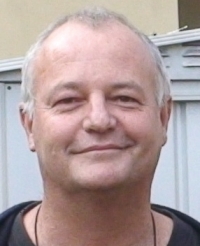 In this short piece Tony White introduces his new book Working with Drug and Alcohol Users: A Guide to Providing Understanding, Assessment and Support. Using transactional analysis theory, this book explains why some people use substances, exploring different personality types, and covers the basic components of drug counselling.
In this short piece Tony White introduces his new book Working with Drug and Alcohol Users: A Guide to Providing Understanding, Assessment and Support. Using transactional analysis theory, this book explains why some people use substances, exploring different personality types, and covers the basic components of drug counselling.
This book is designed for counsellors and those who come into contact with drug and alcohol users as part of their work or in someway in their life. It provides a somewhat new look at drug and alcohol use using the theory of Transactional Analysis as the underlying approach. Other approaches are also discussed, including the Gestalt approach and cognitive behavioral therapy as these also contribute significantly when working with substance users.
Customary areas including a theory of addiction, the assessment of the drug user and different motivations as to why people use drugs are covered. This different approach allows for the development of new and innovative approaches to well known counselling problem areas.
Central to the transactional analysis approach is the idea of therapeutic contracts. From this is described a technique called the harm reduction contract. This describes how the client and counsellor work together to develop a contract for the implementation of harm reduction strategies. It describes a four step process by which the drug user can make a harm reduction contact with the help of the counsellor. Also covered in the area of harm reduction is self harm and drug use, suicide and drug use, dealing with defense mechanisms in harm reduction counselling and so forth.
Another very common area in drug counselling is motivational interviewing which is covered in this book. By using Transactional Analysis one can develop two different types of motivational interviewing. The usual techniques involving the behavior approach are covered and this could be seen as the adult ego state approach to this area. In addition to this, the child ego state can be used as an avenue of motivational interviewing. This book describes a variety of child ego state approaches. It opens up a whole new approach to motivational interviewing that has rarely been discussed before.
The most problematic type of drug user is the dependent drug user who is usually seen as the drug addict. Considerable time in the book is spent looking at how this person functions and what counselling approaches may be successful with them. The approach in this book emphasises the relationship between the drug and the drug user again using the Transactional Analysis principles of symbiosis and dependency. The drug dependent user develops a symbiotic relationship with the drug in the same way a person can develop a dependent relationship with a partner. Indeed this person will have a pattern of relationships in their life that tend to be dependent in nature such that the relationship they have to the drug is the same in nature. The approach described in my new book looks at how one can end the dependent relationship with the drug and a variety of strategies are described.